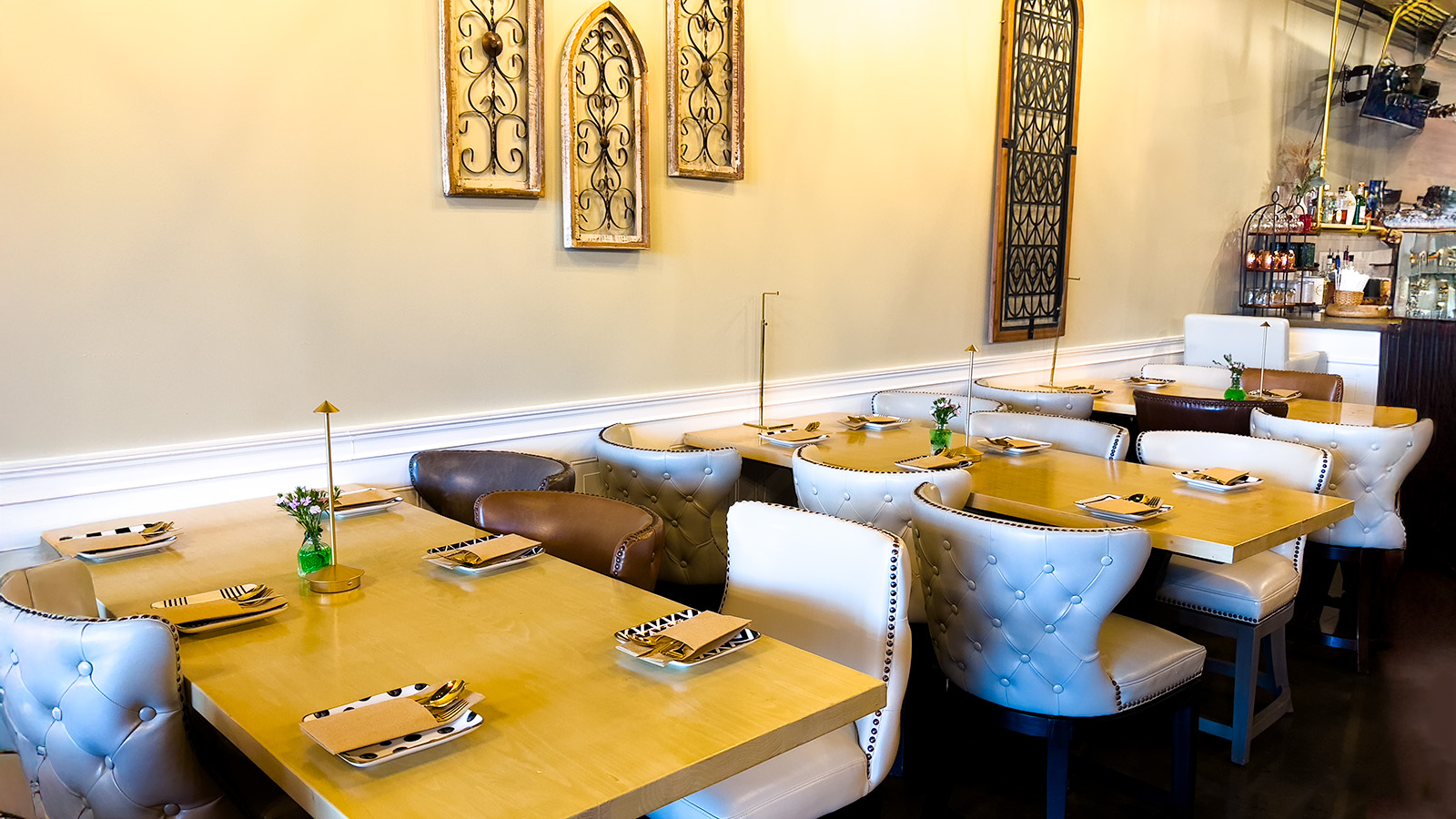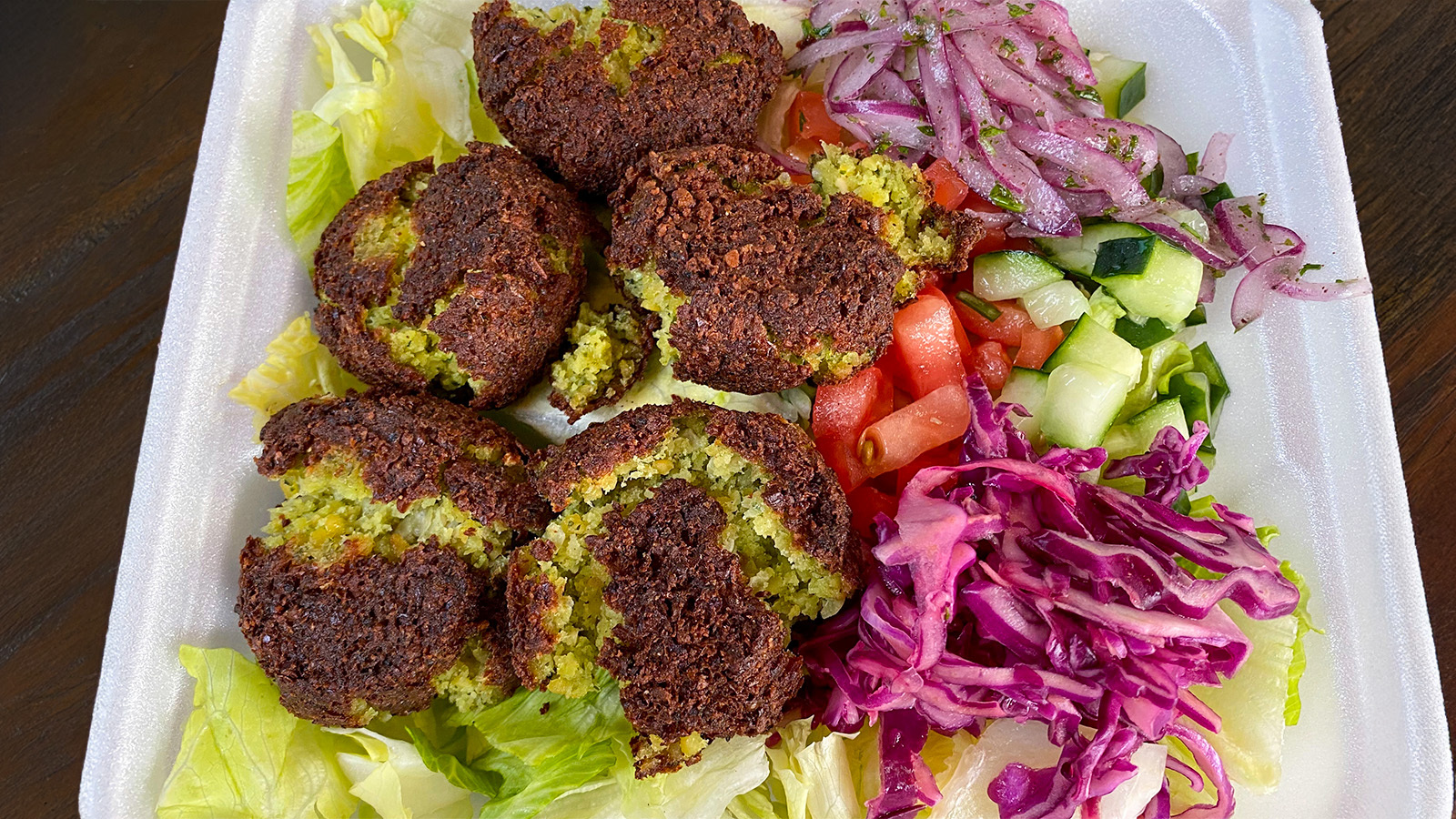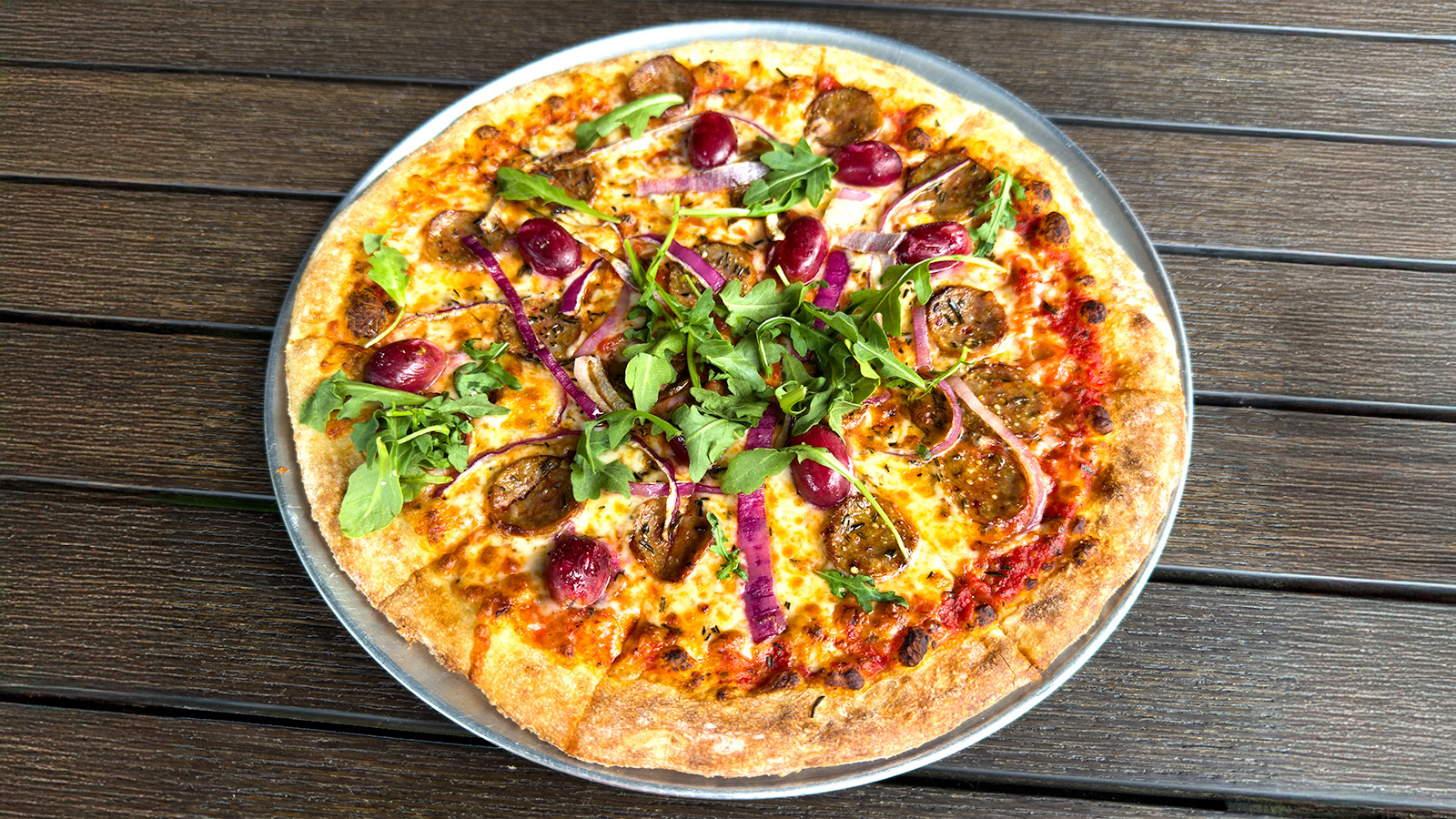June 22, 2023
These chefs are changing Charlotte’s culinary scene
One of Charlotte’s OG chefs pays tribute to those currently leading the way
by Marc Jacksina, executive chef at Little Mama’s
Editor’s note: This story is part of a guest series featuring industry professionals around Charlotte penning opinion pieces on subjects close to them.
I was in Asheville for a weekend of live music, dinner at Curate, and to come to some sort of resolution regarding leaving a job I had absolutely loved but was falling out of love with when the text came in asking if I, as “one of the city’s OG chefs,” would be willing to contribute a story to Unpretentious Palate on the so-called changing of the guard in our food scene.
My departure from the Charlotte dining scene — after 15 years of disrupting it with equal parts reckless abandon, curiosity, and attention seeking — was both intentional and supposedly permanent. The apex of those 15 years was my feature dinner at the James Beard House, and the peek behind the curtain of Oz it gave me. This is by no means an attempt to bash a beloved institution, but after decades of working long, brutal hours and trying to cook as honestly as I could, the realization that accolades from the big stage would require a payment beyond toil and grind and talent was a price too steep to bear.
I came to Charlotte at the beginning of the new millennium, drawn by the growth, the soon-to-open Johnson & Wales University, and the city’s proximity to local agriculture. I knew this was a city destined to have a culinary scene of note; I wanted to be a part of that. What I couldn’t have considered at the time was how long that would actually take, and how the “tear it down and build something new over its bones” ethos of Charlotte construction would permeate the dining attitudes as well.
One of my first reviews, from food critic and dining maven Helen Schwab, included a telling phrase about the fickle nature of Charlotte restaurant patrons that helped inform me over my career, though I refused to believe it at the time. Instead, I forged ahead in crafting my own version of what I saw as the underlying common denominator of our culinary direction — one set by the likes of chefs Tim Groody, Bruce Moffett, Mark Hibbs, and Cassie Parsons; but also appearing on menus by former wunderkind chef Jason Pound and the chef at Ethan’s (whose name I don’t remember, but whose menus were amazing). This would be carried on by the likes of Paul Verica, Luca Annunziata, and Clark Barlowe, to name a few. All these chefs cooked with a different voice, but all of them included local farms, and that would define our scene for the decade or so. Local agriculture and its sustainability was our de facto culinary style.
Sustainability was something that I was struggling with as I came home from the Beard House. The lifestyle I had curated around my craft was informed by the legends of Marco Pirerre White, and the kinds of stories told first in an essay published by The New Yorker, then in a book called Kitchen Confidential. It was fun. It was demanding. It garnered attention. But as a way of living, it was also not sustainable. So I slowly bowed out from the platform I had managed to trick folks into giving me, tried to figure out how to reconnect with what I loved about cooking, and tried to craft an identity that wasn’t just tied to what I did for a living. Being a chef can become all encompassing, the proverbial blessing and curse, denying the individual (or at least this individual) the ability to be a whole person. Which is something I desperately needed to become. Charlotte’s food scene is facing the same dilemma.
The tired and confusing descriptor “Farm to Fork” was finally put to rest somewhere around the beginning of the pandemic. Thank god, God, or whatever manifestation of universal power you ascribe to that it’s gone. What had at one time felt like a movement and reaction to generic dining had become a “Live, Laugh, Love” placard bought on closeout and co-opted as a virtue signal for “healthy” — something that our culinary culture was not, and is still not. But it does seem to be getting there. And oddly, it is still connected to the idea of sustainability.
Upon closer inspection, that really defines the three chefs I see leading the brigade at the moment. This is not a complete list of leaders, but I feel these are the chefs most readers know, and most chefs respect. In a word these chefs are: disruptors. And they are, in no particular order: Greg Collier, Sam Hart, and Sam Diminich.

Chef Greg Collier, Bayhaven Restaurant Group. Peter Taylor Photography
Greg is giving platform and visibility to the Black cook, while also exploring a culinary voice informed by the African diaspora created by slavery. Traditionally, we have not seen many Black faces when we are discussing chefs at the highest level in this country. And that’s not from a lack of talent.
It’s rooted in the problematic culture that kitchens of the past have spawned.
Instead of demanding a seat at the table, Greg and his wife Subrina built their own, and folks took notice. It’s only a matter of time before we will start to see chefs emerge from their kitchens and start leading their own. Diversity and visibility for folks from marginalized communities are still suffering from disparity, but Greg’s leadership has offered a blueprint that we will all benefit from as patrons.
More importantly, it offers a path of sustainability to both the industry as a potential workforce pool, and to those communities as an economic engine. Assuming we are willing to meet them where they are.

Chef Sam Hart, Counter-/Biblio. TM Petaccia/UP
Sam Hart, besides being the second James Beard finalist from Charlotte, is also really the first chef in Charlotte who is getting recognized for the experience he provides, and not just the food. It’s a tough hook to hang your hat on, but he has and parlayed it into a successful endeavor. But this is not why I include Sam here. It’s for his work behind the scenes, pushing for and normalizing better wages for an industry where folks are severely underpaid.
Many employers demanded a degree as a prerequisite to getting a job, but the cost-benefit for the average cook was a net negative, and many were leaving the industry even before the pandemic. That lack of hands was an annoyance, but compared to the reality of a post-pandemic workforce, those pre-pandemic problems seem like a golden age. Sam fought for these wage increases while he was opening his own restaurant, putting his money where his mouth was.
The increase of hourly wages has brought more folks back into the kitchen, and has probably abated a larger problem; restaurant closures. It’s hard to stay in business when your means of production is unwilling to come to work for you.

Restaurant Constance’s Sam Diminich. Peter Taylor Photography
Sam Diminich, like the two chefs mentioned above, managed to pivot successfully at the beginning of the pandemic and used that momentum to grow his businesses and influence the industry’s culture at the same time. Sam’s candor about his experience with substance abuse, and how getting sober transformed him, has quite literally saved lives. His story has caused other chefs to reevaluate their own relationships with substances, behavior, and people.
The downstream effect is a drastic shift of kitchen culture to one that recognizes and extols the importance of mental health over the bravado of enduring brutality in the name of excellence and accolades. Being available and present and humble, words that could be used when describing hospitality has not long been common in hospitality industry culture — a culture that, whether or not old guard chefs like it, is changing.
This shift to a less traumatic culture, a shift Sam personifies, will make cooking a viable career choice for the generations coming into it.
When I exited from restaurant life, I knew that the culture I had helped perpetuate in one manner or another was creating a cocktail of unhealthy relationships and mental distress, even if I couldn’t articulate it. Once I began to work through my own issues and experience a more balanced mental culture, I thought I could never go back streetside. But as the industry began to shift and align with my new values, thanks to the leaders of the new school mentioned here and the cooks unnamed who put their collective foot down and demanded better leadership.
As I began to formulate a plan to switch jobs, returning to lead a restaurant kitchen became a viable option, once I had started to consider the subject of this article. The state of our scene is in good hands, and now, I’m once again in a restaurant kitchen — this time, part of a healthier, more diverse, and better paid Charlotte hospitality community. But we still have work to do. Until we see a workforce and its leadership representing all faces and all the communities that make us up, we will not be truly sustainable.











